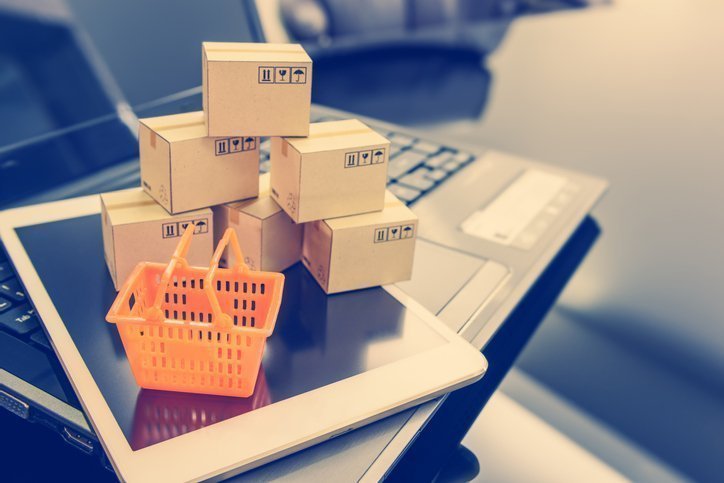You may have noticed that many of your own favorite online retailers or through social media have a “product recommendations for you” section based on an item that you recently bought or are looking at buying. Amazon is certainly one of the reigning champs when it comes to this strategy. Cleverly enough, even paid streaming websites and apps such as Netflix cash in with this strategy for marketing, automatically recommending a certain movie or series based on something that you (the customer) has chosen yourself to watch. This is due to an automated system, also known as marketing automation or machine learning, which takes a variety of factors and calculates what you are most likely to be interested in browsing, purchasing, or watching—you name it. So, how does this strategy work, and why is it so effective? Let’s take a look.
When it comes to online shopping, it seems that personalization is one of the keys to providing a valuable shopping experience. Customers are not only more likely to purchase multiple items, but they will return and conduct more business with that website. Customers want to feel like the business they are shopping from actually cares about them and the quality of their shopping experience so they are more willing to be receptive to product recommendations. Often, these product recommendations are so spot on to their interests and needs, and the customer finds themselves so pleasantly surprised, that they will immediately add the recommended product into their basket.

Where Do You Put Product Recommendations?
You will more than likely see these product recommendations in one of three places: the online retailer’s home page, on the same page of a product you have already clicked, or when you are just about to check out. These can be created by marketing automation software that assesses data and similar automation tools. I have often found that the last two are the most effective and here’s why. Often, you have a certain product or, at least, type of product that you have gone onto that specific website to search for. You often do not need further product recommendations for something that you are not looking for right at this minute. However, once the website algorithm sees what you are actually searching for right at that moment, it is much more likely to be able to offer you product recommendations that are relevant to you, right now. There are so many online retailers that cater to what you need right now when you want it—this is incredibly important. For example, you have ventured onto your favorite clothing retailer’s website, with a search for a green cardigan at the forefront of your mind. You search for one yourself, by either typing it into the website’s search engine, or finding it through their category options. You click on a green cardigan and then, all of a sudden, you are presented with five to seven more green cardigans that you like even more. You can’t decide which one you like most, so you select two, maybe three, and click them into your basket! Done!
Save for Later
Many online retailers also offer the “save for later” option, where potential purchases will be stowed away if they are not immediately purchased. Although some may argue that a low percentage of these items that are sorted into this option actually get purchased, it is certainly a much higher percentage that this item will be returned to, over a retailer that does not have this option. For example, if I have a bunch of items in my cart, and I realize that I cannot necessarily afford to or do not really need some of these items right now, instead of eliminating them from my cart altogether, I can sort them into “save for later.” I have found that when I am forced to delete a product altogether, I rarely, if ever, come back to search for it again. Odds are, I will have probably forgotten about it. Save for later makes sure you do not forget about these items and that, every time you add a new item to your cart, they are still there waiting for you.

So, How Does It Work?
So, you may be wondering how a website does this in the first place. Can it read minds? Unfortunately, it’s a little more complicated than that. First and foremost, the retailer will gather information about what you’re searching for now and what you’ve searched for in the past. Essentially, it’s your entire search history. You may feel that these websites must be using your personal details and information in order to come up with such close to perfect recommendations for you. Honestly, it’s a lot simpler than that. They will also take their own sales history, and look at what items have historically done well sales wise, in relation to what you are looking for. They also often look at what other customers have bought that have ended up purchasing the same items as you or have put the same items in their cart. Amazon, again, is another master of this technique. Not only does this help you find other items that you might be looking for (or didn’t know you were looking for), but the nosey side of us wants to know what other people are buying. You know it’s the truth! It also goes back to the strategy of personalization and feeling like the retailer cares about and knows you. When you see these product recommendations based on what other people have bought, your brain is likely to go, “So, you’re saying that someone like me bought these items? Am I missing out on something? I have to have this!” I’m just saying, there’s a small possibility my brain has done exactly this.
In conclusion, automated product recommendation using some basic information in regards to your customers and your site’s sales is highly valuable. Personally, as an occasional online shopper myself (yes, occasional), I have found product recommendations to be the most valuable in terms of me purchasing additional products or even getting me to consider purchasing additional products. It is so important to keep customers interested in your products, and coming back for more. If a customer knows that they can come to you, as a retailer, and know that they will help them find the products they need and more, it is highly likely to drive your sales right up.

